Living An Eco-Friendly Lifestyle In Singapore
THE GREEN SG • 10 JANUARY 2023 • 10 MIN READ

Embracing an eco-friendly lifestyle is crucial in today’s world, and Singaporeans can play a significant role in promoting sustainability. In a country where 90% of Singaporeans already express their commitment to being environmentally conscious, this article aims to inspire and guide readers in embracing eco-friendly practices in their daily lives. By making small, conscious choices, we can collectively contribute to a greener and more sustainable Singapore for future generations.
In this article, we will explore various categories that encompass an eco-friendly lifestyle in Singapore. By addressing these categories, we aim to empower fellow Singaporeans to make informed choices and embrace sustainable practices in their everyday lives. Together, we can contribute to a greener future and preserve the beauty of Singapore’s environment.
Conscious Consumption
First up, conscious consumption, a key aspect of living an eco-friendly lifestyle in Singapore. It involves being mindful of the products we buy and the impact they have on the environment. By opting for sustainable, eco-friendly alternatives, such as products made from recycled materials, organic ingredients, or those with minimal packaging, we can significantly reduce our ecological footprint
To practice conscious consumption, we need to be informed about the materials, production processes, and ethical practices behind the products we buy. This means researching brands that are committed to sustainable sourcing, using renewable materials, and minimising carbon emissions. Choosing products with eco-labels or certifications like “Fair Trade,” “Organic,” or “Biodegradable” can guide us toward more sustainable options.
Additionally, it’s essential to prioritise durability and longevity when making purchases. Investing in well-made, long-lasting items reduces the need for frequent replacements, thus reducing overall waste.

Here are some specific examples of how we can exercise conscious consumption in various aspects:
1. Sustainable Fashion:
Opt for clothing made from organic or recycled materials, such as bamboo, hemp, or TENCEL™. Read more here.
2. Zero Waste Living:
Embrace reusable alternatives to single-use items. Swap plastic water bottles for stainless steel ones from brands like Klean Kanteen or S’well. Use reusable shopping bags like those offered by The Green Collective, or carry a stainless steel straw from FinalStraw instead of disposable plastic ones.
3. Clean Household Products:
Choose eco-friendly cleaning supplies that are free from harmful chemicals and packaged in recyclable materials. Read more here.
By consciously choosing sustainable alternatives, we can be part of the solution to environmental challenges. Singaporeans, who have shown a growing consciousness towards sustainability, can make a significant impact collectively by embracing conscious consumption and inspiring others to do the same. Together, we can build a more sustainable future for our planet and generations to come.
Waste Management
1. Proper Waste Segregation:
Separate recyclable items such as paper, plastic, glass, and metal from general waste. Utilize designated recycling bins and follow the guidelines provided by the National Environment Agency (NEA) for efficient waste segregation.

2. Recycling Efforts:
Take advantage of recycling programs and facilities available in your community. Recycling bins are conveniently located across the island, and you can recycle common items such as plastic bottles, aluminum cans, and paper. Participate in initiatives like the “Recycle N Save” program to earn incentives for recycling plastic drink bottles.
3. Reduce Single-Use Items:
Minimize the use of single-use items like plastic bags, straws, and disposable cutlery. Instead, opt for reusable alternatives such as cloth bags, stainless steel straws, and bamboo cutlery sets. Brands like The Sustainability Project and The Social Space offer a range of sustainable alternatives to help reduce waste.
4. Food Waste Management:
Singapore has made efforts to combat food waste, and individuals can play a part too. Practice mindful meal planning, minimize food waste by storing leftovers properly, and consider composting organic waste at home using compost bins or Bokashi bins. Organizations like Food Bank Singapore also provide opportunities to donate excess food to those in need.
5. Electronic Waste Recycling:
Dispose of electronic waste responsibly by utilizing designated e-waste recycling points. The NEA conducts regular e-waste recycling drives, making it convenient for Singaporeans to dispose of items like old mobile phones, laptops, and electronic appliances in an environmentally friendly manner.
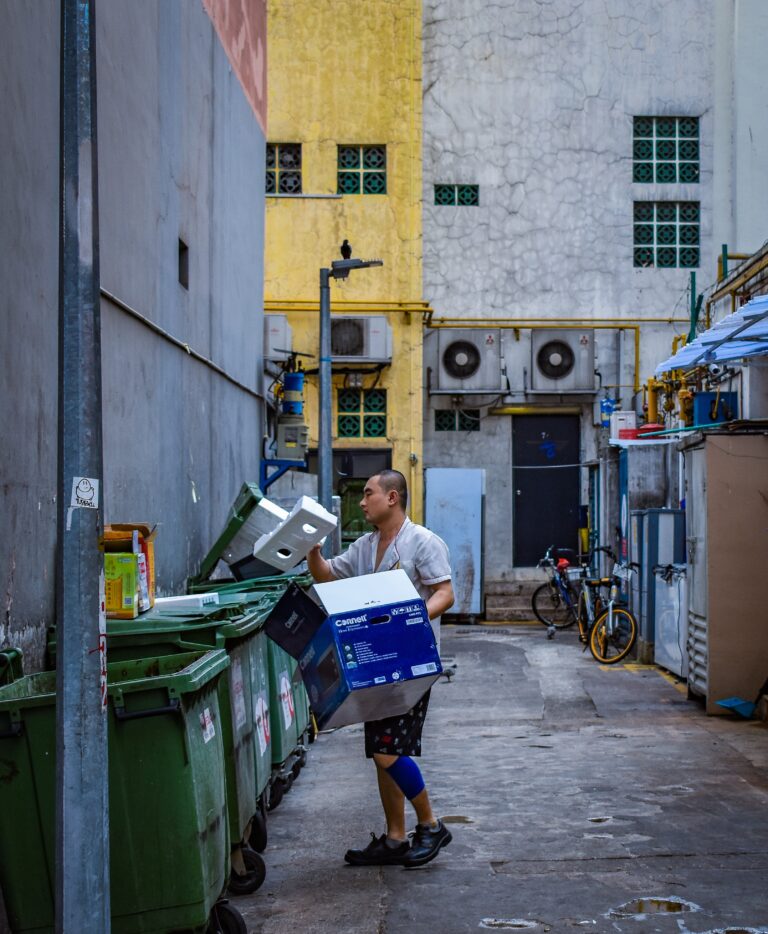
Energy Conservation
With the growing focus on sustainability and environmental responsibility, energy conservation plays a vital role in creating a greener future. By adopting these following practices, we can not only save on energy costs but also make a positive impact on the environment and build a more sustainable society for generations to come.
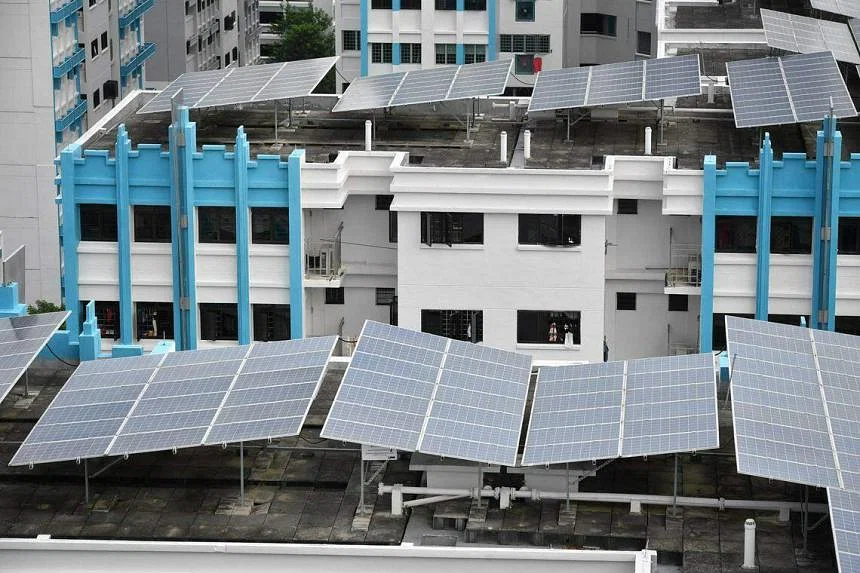
1. Efficient Lighting:
Switch to energy-efficient LED bulbs or compact fluorescent lamps (CFLs) for your lighting needs. These options consume less energy and have a longer lifespan compared to traditional incandescent bulbs.
View products here.
2. Appliance Usage:
Be mindful of your appliance usage. Turn off lights, fans, and electronic devices when not in use. Choose energy-efficient appliances with high energy ratings when making new purchases, such as refrigerators, air conditioners, and washing machines.
3. Air conditioning:
Optimise your air conditioning usage to conserve energy. Set the temperature at an energy-efficient level and use fans to circulate cool air. Consider using curtains or blinds to block out direct sunlight and reduce the need for excessive cooling.
4. Smart Home Technology:
Embrace smart home technology that allows you to monitor and control your energy usage efficiently. Smart thermostats, energy monitors, and automated lighting systems can help optimise energy consumption and reduce wastage.
E.g LifeSmart, LG, Daikin Singapore
5. Public Transport & Carpooling:
Reduce your carbon footprint by utilising public transportation whenever possible. Singapore has a well-developed public transport system that is both efficient, eco-friendly, and affordable. Additionally, consider carpooling or using ride-sharing services to reduce vehicle emissions.
Sustainable Food Choices
Sustainable Food Choices in Singapore extend beyond waste segregation and reducing single-use items. It involves making conscious decisions about the food we consume, considering factors such as sourcing, production methods, and packaging. Opting for locally grown and organic produce from initiatives like Singapore’s “30 by 30” goal to produce 30% of our food locally by 2030, supporting farmers’ markets such as Kranji Countryside Farmers’ Market, and participating in community-supported agriculture like ComCrop’s urban farming projects are excellent ways to support local and sustainable food production.
1. Support Local Initiatives
Reducing food waste through initiatives like Food Bank Singapore and embracing plant-based alternatives from brands like Green Common and The Green Capsule contribute to a more sustainable food system, supporting our environment and well-being.
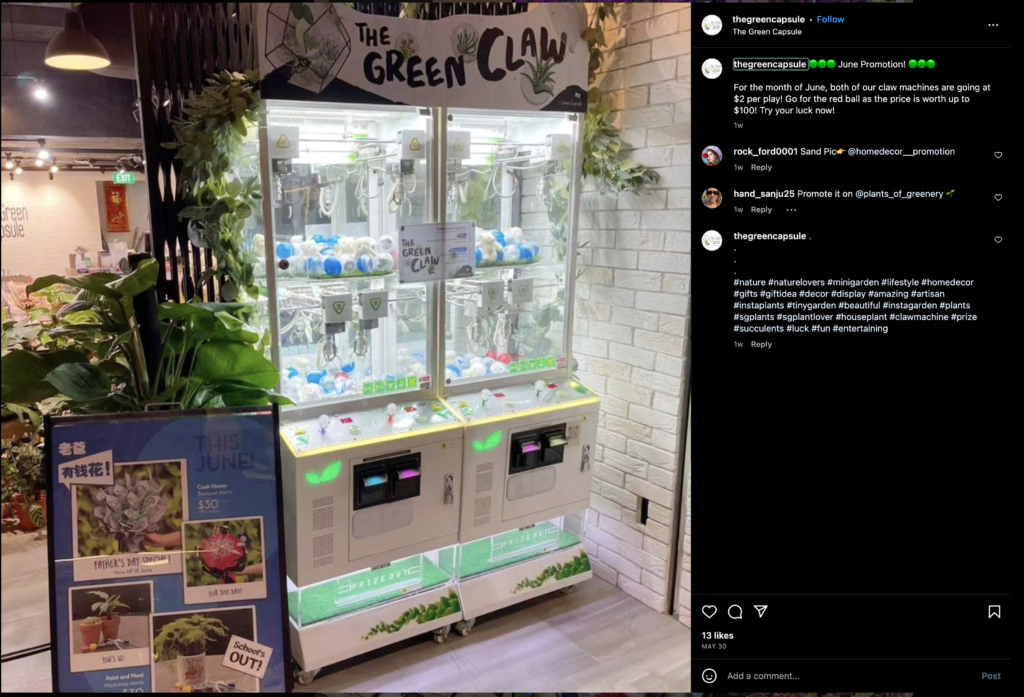
2. Adopt Sustainable Strategies
To combat food waste, individuals can adopt strategies such as proper meal planning, storing food correctly, and repurposing leftovers. Apps like Too Good To Go connect consumers with discounted surplus food from eateries, reducing food waste while offering affordable options.
The shift towards plant-based alternatives is gaining traction in Singapore, with an increasing number of people embracing vegetarian and vegan lifestyles. Local plant-based brands like Green Monday and WellSmoocht offer a wide range of delicious and sustainable options, from plant-based meats to dairy-free alternatives. By reducing meat consumption and incorporating more plant-based foods into their diet, individuals can make a positive impact on both their health and the environment.
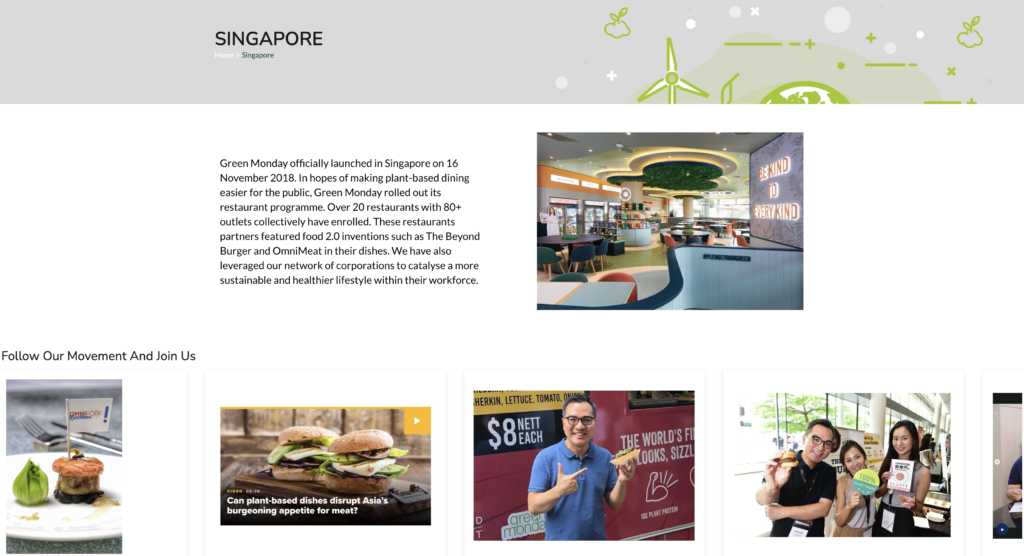
By making sustainable food choices, Singaporeans can contribute to a more environmentally friendly future. Whether it’s through embracing urban farming, choosing sustainable seafood, reducing food packaging, combating food waste, exploring plant-based alternatives, or supporting sustainable dining establishments, each individual action has the power to create a positive impact on our planet and future generations.
Embrace Green Spaces & Biodiversity
Singapore is not just a concrete jungle; it is also a city with a flourishing ecosystem and diverse wildlife. Preserving and enhancing our green spaces is crucial for maintaining biodiversity and ensuring a healthy ecosystem. By supporting initiatives such as community gardens and urban farming, we can create pockets of greenery within our urban landscape, providing habitats for native flora and fauna.
Additionally, promoting the use of native plant species in landscaping helps to preserve biodiversity and maintain a balanced ecosystem. Let’s embrace green spaces, foster biodiversity, and create a harmonious coexistence between nature and urban development in Singapore.
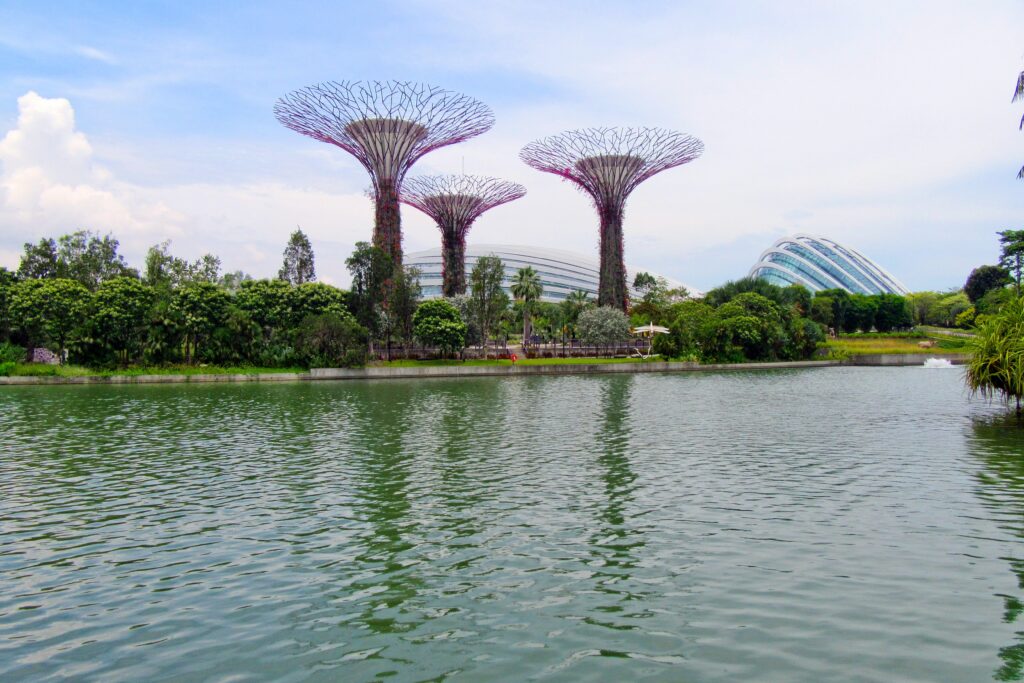
Singapore is home to various green spaces and initiatives that contribute to biodiversity preservation. One such example is the Gardens by the Bay, a world-renowned horticultural attraction that showcases a stunning collection of plants from around the globe while emphasizing sustainability and environmental education.
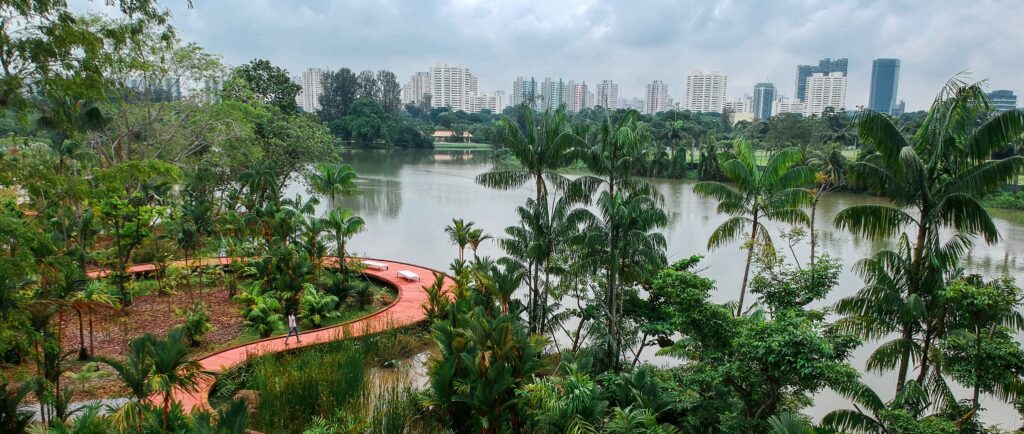
The Jurong Lake Gardens, on the other hand, showcases the transformation of an industrial site into a lush garden paradise, promoting the conservation of local plant species. Community-led initiatives like urban farming in places like Edible Garden City and citizen science projects such as the Butterfly Trail contribute to the preservation of local biodiversity.
By supporting these initiatives and advocating for the protection of our green spaces, we can create a thriving environment for both wildlife and people in Singapore. Let’s cherish and nurture our green spaces to ensure a sustainable and biodiverse future for generations to come.
To wrap it up....
In conclusion, living an eco-friendly lifestyle in Singapore is not just a choice; it’s a responsibility we owe to our planet and future generations. By incorporating conscious consumption habits, practicing efficient waste management, conserving energy and water, embracing sustainable transportation options, cherishing our green spaces, and making mindful food choices, we can contribute to a more sustainable and resilient Singapore.
Remember, every choice we make has an impact and every sustainable action counts. So, let’s continue to lead by example, educate others about the importance of eco-friendly living, and advocate for policies and initiatives that promote a greener and more sustainable future. Together, we can create a Singapore that not only thrives economically but also shines as a sustainable and environmentally conscious nation.

